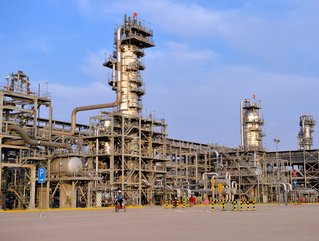
The Saudi Arabian Oil Company (Aramco) has posted an 82% year-on-year increase in net income to $39.5bn, setting a new quarterly earnings record for the Company since its IPO in 2019, as it benefited from higher crude prices and improved downstream margins.
Aramco also declared a Q1 dividend of $18.8bn to be paid in Q2 and has approved the distribution of one bonus share for every 10 shares held in the company.
President & CEO Amin H. Nasser said against the backdrop of increased volatility in global markets, it remains focused on helping meet the world’s demand for reliable, affordable and increasingly sustainable energy.
"Energy security is vital and we are investing for the long term, expanding our oil and gas production capacity to meet anticipated demand growth and creating long-term shareholder value by capitalising on our low lifting cost, low upstream carbon intensity, and integrated downstream business," he said.
"As we collaborate with domestic and international partners to explore new and emerging technologies and solutions, from developing cleaner transport technologies to establishing low-carbon hydrogen and ammonia value chains, I am more optimistic than ever about the positive contribution we can make, both to our customers and to the ongoing global energy transition.”
Aramco Q1 financial highlights
Cash flow from operating activities was $38.2bn in Q1 compared with $26.5bn in Q1 2021, free cash flow increased by 68% year-on-year to $30.6bn, and capital expenditure was $7.6bn.
Its gearing ratio reduced 8% at March 31, 2022 from 14.2% at December 31, 2021 as a result of higher cash and cash equivalents, primarily attributable to stronger operating cash flows and cash proceeds in connection with Aramco’s gas pipeline transaction.
Aramco decreased its total borrowings principally through a prepayment to the Public Investment Fund in January, therefore reducing the total outstanding principal amount of Promissory Notes by $8bn originally issued in connection with the acquisition of a 70% stake in SABIC, resulting in a reduction in financing costs.
It closed a lease and leaseback deal involving its gas pipeline network with a consortium of investors led by BlackRock Real Assets and Hassana Investment Company. The consortium acquired a 49% stake in a newly formed Aramco subsidiary, Aramco Gas Pipelines Company, with Aramco receiving upfront proceeds of $15.5bn.
Aramco Q1 operational highlights
Aramco demonstrated reliable upstream performance with an average total hydrocarbon production of 13mn bpd in Q1.
The company achieved 99.9% reliability in its deliveries to customers in the quarter and in its upstream business, it made progress towards completing the Hawiyah and Haradh compression projects, with both due to come on-stream by the end of 2022, adding 1.3bn standard cubic feet per day (bscfd) of raw gas.
The company also advanced construction of the Hawiyah Gas Plant expansion (pictured), part of the Haradh Gas increment program, which is expected to be on-stream in 2023.
Aramco agreed to acquire a 30% stake in a 210,000 bpd refinery in Gdansk, Poland, along with sole ownership of an associated wholesale business, and also bought a 50% stake in a Polish jet fuel marketing joint venture with BP.
Completion of the acquisitions, from Polish refiner and fuel retailer Grupa LOTOS in connection with its proposed merger with PKN Orlen, are subject to regulatory approvals.
In China, it made a final investment decision to participate in development of a major integrated refinery and petrochemical complex. The joint venture, with North Huajin Chemical Industries Group Corporation and Panjin Xincheng Industrial Group, includes establishing a 300,000 barrels per day refinery and petrochemicals complex, subject to completion of the joint venture transaction.
During the quarter, Aramco entered into new collaborations that seek to build on its global research and development network to advance low-emission transport solutions.
These include a partnership with Hyundai Motor Group and King Abdullah University of Science and Technology (KAUST) to jointly research and develop an advanced fuel for hybrid electric vehicles, to lower their CO2 emissions.
Aramco also entered into a long-term strategic partnership with the Aston Martin Aramco Cognizant Formula One Team and, through joint R&D, will support the team’s efforts to meet Formula 1’s sustainable fuels goal, as well as development of fuel-efficient engine technologies for road vehicles and more efficient hybrid engines in motorsport.
The company also expanded its international co-operation on developing nonmetallic solutions for the building industry, partnering with the China Building Materials Academy (CBMA) to launch the Nonmetallic Excellence and Innovation Center (NEXCEL) in Beijing.
The center aims to promote the development and application of nonmetallic technologies in structures to reduce their carbon footprint and offer superior lifecycle cost, efficiency and environmental advantages over metal alternatives.






